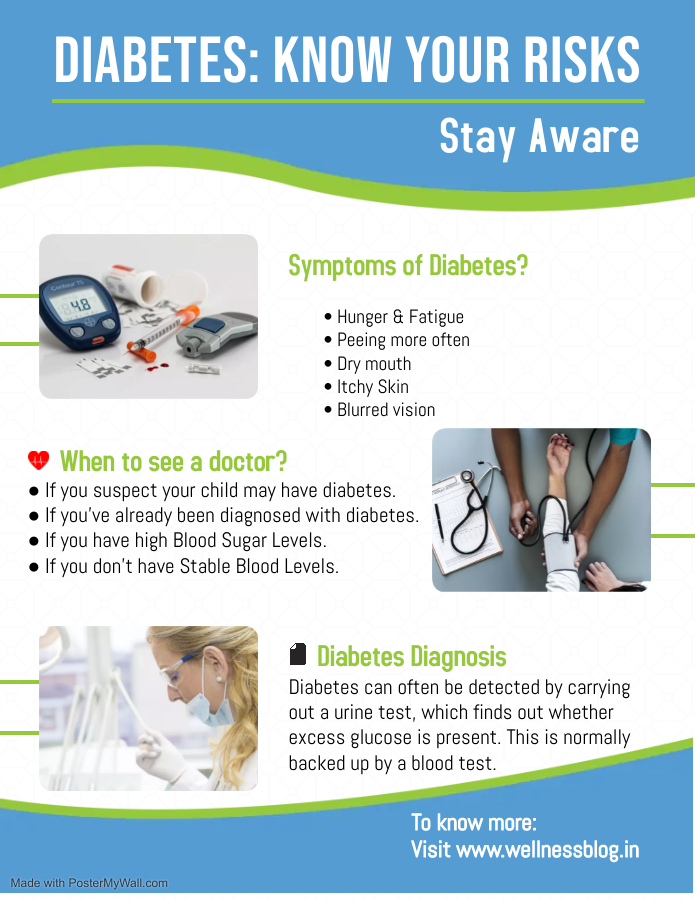What is diabetes?
It is a lasting medical condition that occurs when the pancreas fails to produce sufficient insulin (a hormone that controls blood sugar) due to improper response from the body’s cells.
When we consume food, particularly carbohydrates, the body breaks down these nutrients into glucose. Glucose serves as a primary source of energy for cells. To use this energy our body requires a hormone called insulin. However, when the body is unable to effectively use the insulin it leads to the regulation of blood sugar levels.
It occurs either because the body cannot produce enough insulin or because the cells do not respond properly to the insulin that is produced. Insulin is crucial for allowing glucose to enter cells.

Types of Diabetes:
There are several types, but the two main types are:
Type 1 Diabetes:
Cause: It occurs when the immune system mistakenly attacks and destroys the insulin-producing beta cells in the pancreas.
Insulin Production: Little to no insulin is produced in the body.
Onset: Often diagnosed in children and young adults.
Treatment: Requires daily insulin injections or an insulin pump to survive.
Risk Factors: Genetics and family history.
Type 2 Diabetes:
Cause: It occurs when the body doesn’t use insulin properly, known as insulin resistance, and can’t produce enough insulin to maintain normal glucose levels.
Insulin Production: Initially, the body may produce insulin, but over time, production may decrease.
Onset: Commonly develops in adults, but is increasingly seen in children.
Treatment: Managed with lifestyle changes, oral medications, and sometimes insulin.
Risk Factors: Obesity, lack of physical activity, and genetic factors contribute.
Gestational Diabetes:
Occurrence: Develops in some women during pregnancy.
Risk Factors: Increases the risk of Type 2 diabetes later in life for both the mother and child.
Management: Usually involves lifestyle changes and monitoring blood sugar levels.
Understanding the type of diabetes is crucial for effective management and treatment to the specific needs of individuals.
Conclusion:
Diabetes is a chronic illness resulting from insufficient insulin production causing abnormal blood sugar levels. Type 1, often diagnosed in children, requires daily insulin, while Type 2, related to lifestyle, is managed with lifestyle changes and medications. Gestational diabetes during pregnancy increases the risk of Type 2 diabetes later in life. Recognizing the specific type of diabetes is vital for personalized and effective management.

